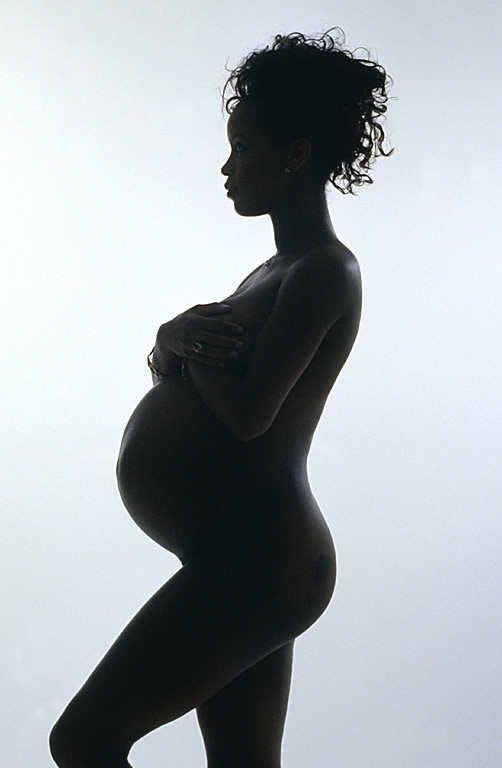What Remains of a Woman?
On Adriana Smith and the Widespread Backslide of Reproductive Rights.
Before being declared brain dead by the hospital, Adriana Smith lived a life like any of ours and where she was initially unaware that she suffered from brain clots, her death was as unexpected for her as her treatment after death was for us. But before then, Adriana was a thirty-year-old nurse and mother to her five-year-old son, in addition to being the daughter to her mother, April. I’m also willing to bet she had friends and other relationships, as well as interests and hobbies that were ever-changing as she continued to age. Aside from this, she will have had a unique perspective accompanied by personalised thoughts and feelings about the world around her like any of us. The context that cushioned her life might at the very least seem irrelevant or at the very most seem to forced-birth’ers like an attempt to garner increased sympathy for her position. As it happens, I’m not trying to inspire sympathy, (you should already have that), but rather highlight the sheer force it takes to scrub away the details of her life and reduce her essence to that of an incubator.
Citing Georgia’s six-week abortion ban and its fetal personhood provisions, which recognize embryos and fetuses as legal persons, doctors are refusing to grant Smith the same dignity routinely afforded to the terminally ill or severely injured. In the process of grieving for their loved one, her family says they were told this left them no choice but to maintain life support to carry the pregnancy to term. I wonder about how confusing it must be to know your mother and daughter has for all intents and purposes, died, whilst watching life grow inside of her. For many of us simply witnessing the tragedy as third parties, it must be horrifying to witness this first hand, where the concept seems to violate the laws of nature. As with breaking any laws, there are bound to be consequences and for the fetus - now named Chance - who never had the chance to develop properly. Doctors warn of a high risk of serious health issues ranging from fluid in the brain to potential blindness or even death after birth, leaving many (myself included) questioning the logistics behind the forced birth.
The incident comes following the overturn of Roe v. Wade in 2022, supported by a cultural shift whose language stretches far beyond the constraints of typical ‘pro-life’ rhetoric. While Georgia’s attorney general says the law doesn’t require keeping brain-dead women alive, anti-abortion advocates argue the hospital is right to try to save the fetus, even as Smith’s body is reportedly ‘decaying’. As a stark example of how fetal personhood laws can override the wishes of families and the medical realities of patients, the case sets an incredibly dangerous precedent that forced birth is to become the reality as opposed to a radical, fringe concept.
For those of us in the UK, we’ve seen where abortion laws have begun to regress here too. As shown by the recent case of Nicola Packer, who was prosecuted for taking abortion pills beyond the legal 10-week limit, there has been a wider trend of increased criminal prosecutions of women under outdated laws in this country.
Since late 2022, six women have been prosecuted under the 1861 Offences Against the Person Act, compared to just three such cases in the previous 160 years.
Advocating for pro-choice legislation, many of us argue that abortion should be decriminalised altogether, preventing women from being prosecuted for seeking healthcare. As of now there is a date set for June 2nd to address this issue, but to compound our concerns, U.S. State Department officials visited the UK recently to meet with anti-abortion activists claiming their freedom of expression is being restricted.
Highlighted cases include Livia Tossici-Bolt, charged with standing near an abortion clinic with a sign offering conversation, and Adam Smith-Connor, convicted for praying in protest of abortion rights in a restricted area.
Across the digital landscape, users everywhere have taken to varying forms of online activism, the least of which involves the curation of Tiktok edits marketed as keen observations comparing Smith’s injustice to The Handmaid’s Tale - a dystopian novel based series written by Margaret Atwood following the story of Offred, a woman forced to bear children for the ruling elite.
It must be said that even if we can’t resist these seemingly appropriate comparisons, it’s worth noting where shows like the Handmaid’s tale and other works of political fiction (e.g. The Hunger Games), are drawn from the realities of black and brown oppression. The abuse and exploitation of the black female body long predates the show, having been a well documented, systemic practice throughout history. For me, comparing Smith’s injustice to this work of fiction does a disservice to the wider and considerably more significant conversation around the types of abuse reserved specifically for women of colour, where the show’s protagonist alongside many of the main characters is white. The separation of this issue from blackness as depicted in the show threatens to address the issue at its core considering where dehumanisation has always been inextricably tied to race.
Earlier this year, a similar case was also compared to the novel, where the coverage surrounding the ‘Human Egg Farm’ also discovered in Georgia was partially drowned out by trending edits of the series due to increased discourse surrounding the subject. According to Thailand’s The Nation, 100 Thai women were trafficked to Georgia and were later forced into illegal and dangerous egg harvesting procedures under the false promise of legal surrogacy work. Eventually three women were rescued and returned to Thailand with help from Interpol and Thai authorities, after one victim, "Na," escaped and alerted officials.
By placing Adriana Smith’s story into the context of a climate that is conducive to cases like these, her forced birth appears to send a very clear message. This enforcement stands to remind women of their ‘purpose’ most efficiently. This decision says, ‘You are your body, not your spirit, your wants and needs or even your mind. Here, you are not the details or texture of your life. Here, the sum of your worth equates to your capacity to bear children, as does the validity of your womanhood’.
“What’s next? Women in comas being impregnated because … why not? Vulnerable women being lobotomized and used as incubators? Should the state be able to forcefully impregnate every woman whose body is capable of carrying a baby? Where does it stop?”
Tayo Bero, The Guardian - “Dear America : women's bodies are not state property”
Asisa







